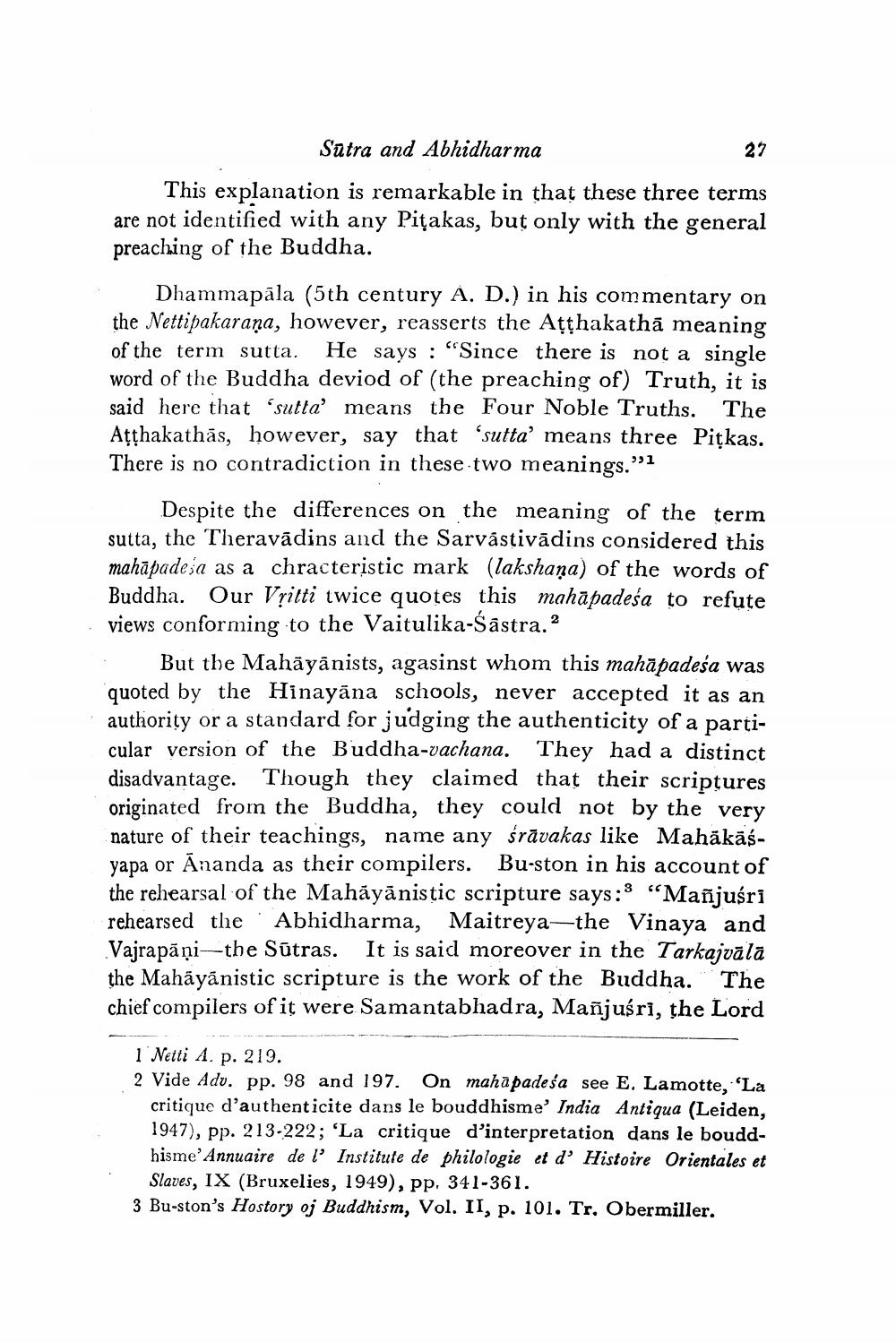________________ 22 Satra and Abhidharma This explanation is remarkable in that these three terms are not identified with any Pitakas, but only with the general preaching of the Buddha. Dhammapala (5th century A. D.) in his commentary on the Nettipakarana, however, reasserts the Atthakatha meaning of the term sutta. He says : "Since there is not a single word of the Buddha deviod of (the preaching of) Truth, it is said here that sutta' means the Four Noble Truths. The Atthakathas, however, say that 'sutta' means three Pitkas. There is no contradiction in these two meanings."1 Despite the differences on the meaning of the term sutta, the Theravadins and the Sarvastivadins considered this mahapadesa as a chracteristic mark (lakshana) of the words of Buddha. Our Vritti twice quotes this mahapadesa to refute views conforming to the Vaitulika-Sastra. But the Mahayanists, agasinst whom this mahapadesa was quoted by the Hinayana schools, never accepted it as an authority or a standard for judging the authenticity of a particular version of the Buddha-vachana. They had a distinct disadvantage. Though they claimed that their scriptures originated from the Buddha, they could not by the very nature of their teachings, name any sravakas like Mahakas. yapa or Ananda as their compilers. Bu-ston in his account of the rehearsal of the Mahayanistic scripture says:3 "Manjusri rehearsed the Abhidharma, Maitreya--the Vinaya and Vajrapa ni--the Sutras. It is said moreover in the Tarkajvala the Mahayanistic scripture is the work of the Buddha. The chief compilers of it were Samantabhadra, Manjusri, the Lord 1 Netti 4. p. 219. 2 Vide Adv. pp. 98 and 197. On mahapadesa see E. Lamotte, 'La critique d'authenticite dans le bouddhisme' India Antiqua (Leiden, 1947), pp. 213-222; 'La critique d'interpretation dans le bouddhisme'Annuaire de l'Institute de philologie et d'Histoire Orientales et Slaves, IX (Bruxelies, 1949), pp. 341-361. 3 Bu-ston's Hostory oj Buddhism, Vol. II, p. 101. Tr, Obermiller.




